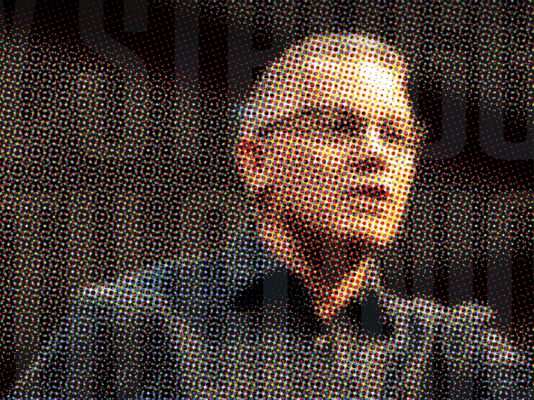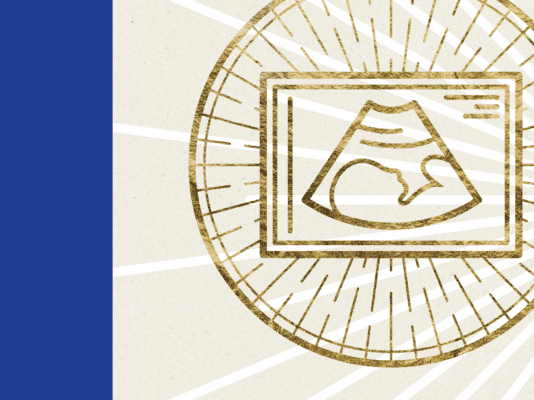Where you find Baptists, you find a people devoted to the cause of religious liberty. From the earliest decades of the 17th century, Baptists like Thomas Helwys and John Murton contended for soul freedom, or the ability to choose what one believes, for all people—a campaign they conducted within the walls of Newgate prison as incarcerated dissenters from the established Anglican order. Their efforts were picked up by subsequent figures such as Roger Williams, John Clarke, and Obadiah Holmes. These three individuals, who also suffered for their religious beliefs, helped plant religious liberty as a viable political policy in colonial New England.
Men such as Isaac Backus and John Leland were tireless advocates in the colonial period and early republic for the Baptist principle of religious liberty. They argued that religious establishment inhibited the conditions conducive to true spiritual regeneration and political prosperity. Given the Baptist tradition on religious liberty, it was no wonder that U.S. Secretary of State Charles Hughes declared in 1922: “This contribution is the glory of the Baptist heritage, more distinctive than any other characteristic of belief or practice.” George Truett, the former pastor of First Baptist Church in Dallas, Texas, also argued that “it is the consistent and insistent contention of our Baptist people, always and everywhere, that religion must be forever voluntary and uncoerced.”
Religious liberty advocacy through the ERLC
Southern Baptists have perpetuated these ideals, contending for the cause of conscience throughout the 20th and 21st centuries. They have also adopted similar strategies from Baptists in previous generations by cooperating together, forming committees and entities specifically charged with defending religious liberty in America and abroad.
The formation of the Ethics and Religious Liberty Commission (ERLC) in 1997 from the Christian Life Commission (CLC) and Public Affairs Committee (PAC), represented a renewed emphasis among Southern Baptists to fund a research and policy arm of the Southern Baptist Convention (SBC) tasked with protecting and defending the sacred rights of conscience. This vital work channeled what Baptists from the early American republic understood about religious liberty: success in the cause of freedom was more certain through cooperation.
Since the ERLCʼs formation in 1997, the cultural climate has grown more hostile to Christianity. The sexual revolution and the increased polarization of the American public square have led academics and political activists alike to question the importance of religious liberty. In the wake of the legalization of same-sex marriage with the Obergefell v. Hodges U.S. Supreme Court decision in 2015, religious liberty is culturally contested in ways it has not been before, with some viewing it merely as a pretext to justify bigotry and discrimination.
As such, Baptists no longer find themselves contending for the liberty not to pay taxes in support of the established religious order. On the contrary, all Christians now confront a society averse to the moral and ethical claims of Christianity. This predicament presents a myriad of peculiar and perilous challenges to religious liberty as Christians now contend for the liberty and freedom to live publicly in a way that corresponds with their deepest convictions.
Unlike our forebears who contended for the right to withhold their children from infant baptism, today’s controversies are often tied to questions of sexuality and gender. Must a Christian baker design a cake celebrating a “transgender birthday”? Must Christian foster care and adoption agencies alter their deeply held beliefs on marriage and family in order to partner with the state in the care of orphans? Must Christian colleges and universities surrender their theological convictions if they plan to participate in state funding and enjoy tax incentives? These questions, and many more, reverberate throughout the public square with significant ramifications on religious liberty.
Rooted in a long-standing, robust theological heritage, and with conviction about the common goods secured through conscience protections, the ERLC has confronted these challenges facing the Church. The efforts of the ERLC on the matter of religious liberty have emerged from a clear conception about the origin of soul freedom: religious liberty is a natural right, making it pre-political and therefore not subject to the whims of the mob or the headwinds of the cultural climate.
This principled understanding of religious liberty has undergirded the ERLC’s advocacy over the years. From landmark judicial decisions to religious liberty on a global scale, the ERLC has sought to represent Southern Baptists on issues of conscience, protecting this first freedom for the purposes of the gospel and human flourishing.
Amicus briefs
Advocacy before the court is an important part of the ERLC’s efforts. One way the Commission does this is through amicus, or friend of the court, briefs. Before the formation of the ERLC, the CLC started to file amici briefs on religious liberty in the 1990s, once it absorbed the PAC. Since then, the ERLC has filed numerous amici briefs in watershed religious liberty cases as a means of advocacy before the courts. These include:
• Hosanna-Tabor Evangelical Lutheran Church and School v. EEOC: a 2012 case where the court held that the First Amendment prevents the federal government from intervening in the employment practices of churches,
• Masterpiece Cakeshop v. Colorado Civil Rights Commission: a 2018 case that involved a Christian baker who desired to operate his business in a way consistent with his Christian faith,
• Burwell v. Hobby Lobby: a 2014 case requiring employers to offer abortion-causing drugs in their insurance coverage as part of the Affordable Care Act,
• and Our Lady of Guadalupe School v. Morrissey Berru: a 2020 case that debated whether the First Amendment’s religion clause allows courts to interfere with a religious organization’s employment decisions when the employee performs religious duties.
In each of these cases, the ERLC, on behalf of Southern Baptists, advanced the cause of religious liberty in the public square, contending that the rights of conscience cannot be sequestered to the private spheres of our homes or churches. Instead, men and women, as those made in the image of God, have the right to publicly profess and practice their religious beliefs without fear, government interference, or retribution.
Legislation
In addition to its legal portfolio, the ERLC has raised awareness amongst Southern Baptists on key pieces of legislation. Most notably, the CLC, under the direction of Richard Land, joined the Coalition for the Free Exercise of Religion in order to secure the passage of the Religious Freedom Restoration Act (RFRA, 1993), which protects religious liberty for all Americans.1https://www.clsnet.org/document.doc?id=803 Further, the Commission has opposed the Do No Harm Act since its initial introduction in 20172https://www.nbcnews.com/feature/nbc-out/congressional-democrats-reintroduce-do-no-harm-act-n978101 because it would weaken religious liberty protections for millions of Americans by hollowing out RFRA.3https://erlc.com/wp-content/uploads/2023/01/ERL3103_LegisAgenda_012523.pdf
Most recently, the ERLC has advocated tirelessly against the Equality Act, which seeks to expand the definition of “sex” to include “sexual orientation” and “gender identity” (SOGI) and constitutes one of the gravest threats to American religious liberty. In addition, the Commission continues to call for vital conscience protections in appropriations bills which provide money for government funding each year.
By cooperating together and funding the ERLC, Southern Baptists have dedicated important resources to ensure scrutiny of proposed laws that would infringe upon the rights of conscience. In fact, throughout its existence, former presidents of the ERLC have appeared before Congress, contending for policy initiatives that protect our most fundamental liberties.4https://erlc.com/resource-library/press-releases/sbcs-richard-land-testifies-in-support-of-workplace-religious-freedom-act/
International issues
The challenges threatening religious liberty in America, though important, have not eclipsed the plight of those around the world who suffer religious persecution. On this front as well, the ERLC has devoted time and resources to raise awareness about the importance of religious liberty around the world. As a natural right, religious liberty must be recognized, respected, and protected in every nation. Furthermore, securing religious liberty abroad nourishes relations between America and other nations, engendering peace and concord among countries.
In 2021, the SBC passed a resolution called “On the Uyghur Genocide,” becoming the first denomination to rightly call out the atrocity happening in China.5https://www.sbc.net/resource-library/resolutions/on-the-uyghur-genocide/ In addition, the ERLC, along with like-minded partners, advocated for and celebrated the passing of the “Uyghur Forced Labor Prevention Act.”6https://erlc.com/resource-library/press-releases/erlc-commends-congress-on-reaching-agreement-on-uyghur-forced-labor-prevention-act/
Further, the ERLC has wielded its influence in the public square to try and alleviate religiously-motivated violence across the globe, such as the persecution of Christians in Malyasia7https://erlc.com/resource-library/white-papers/religious-freedom-and-liberty-partnership-in-malaysia/ and North Korea.8https://erlc.com/resource-library/issue-briefs/erlc-supports-freedom-of-religion-and-belief-in-the-democratic-peoples-republic-of-korea-dprk/ In so doing, not only has the ERLC helped promote human flourishing, but it also fosters conditions globally that make it easier for Christian churches and missionaries to reach the lost for the Kingdom of Christ.
As Southern Baptists look to the future, it is important to continue to stand for religious liberty. We should, furthermore, see the pending threats to liberty of conscience as a direct assault on the imago Dei. As stewards of our history and heritage, it is incumbent upon Southern Baptists, cooperating together through the ERLC, to contend for this first freedom as an act of love for our neighbors, and for the glory of Christ and his Kingdom.










